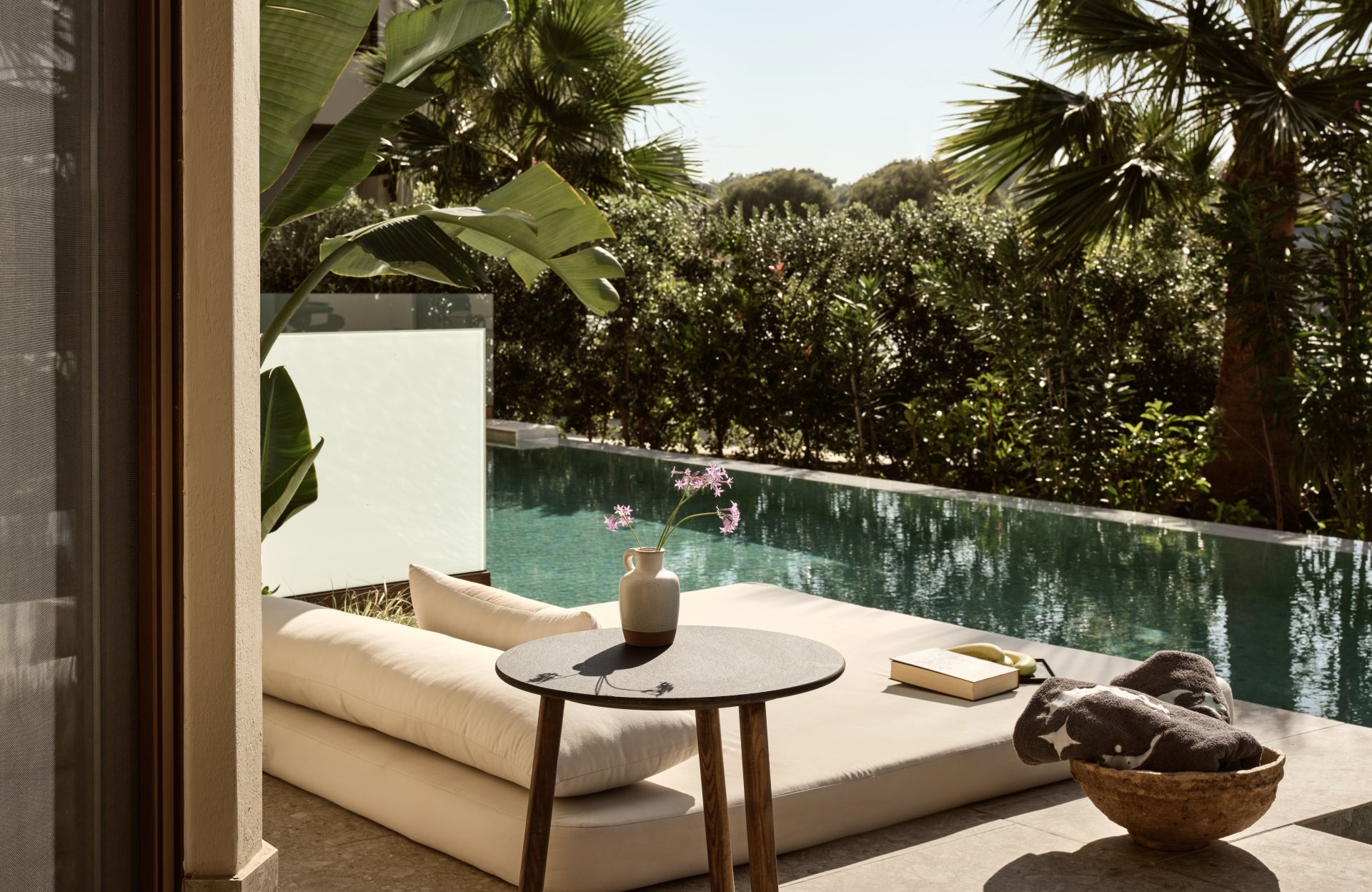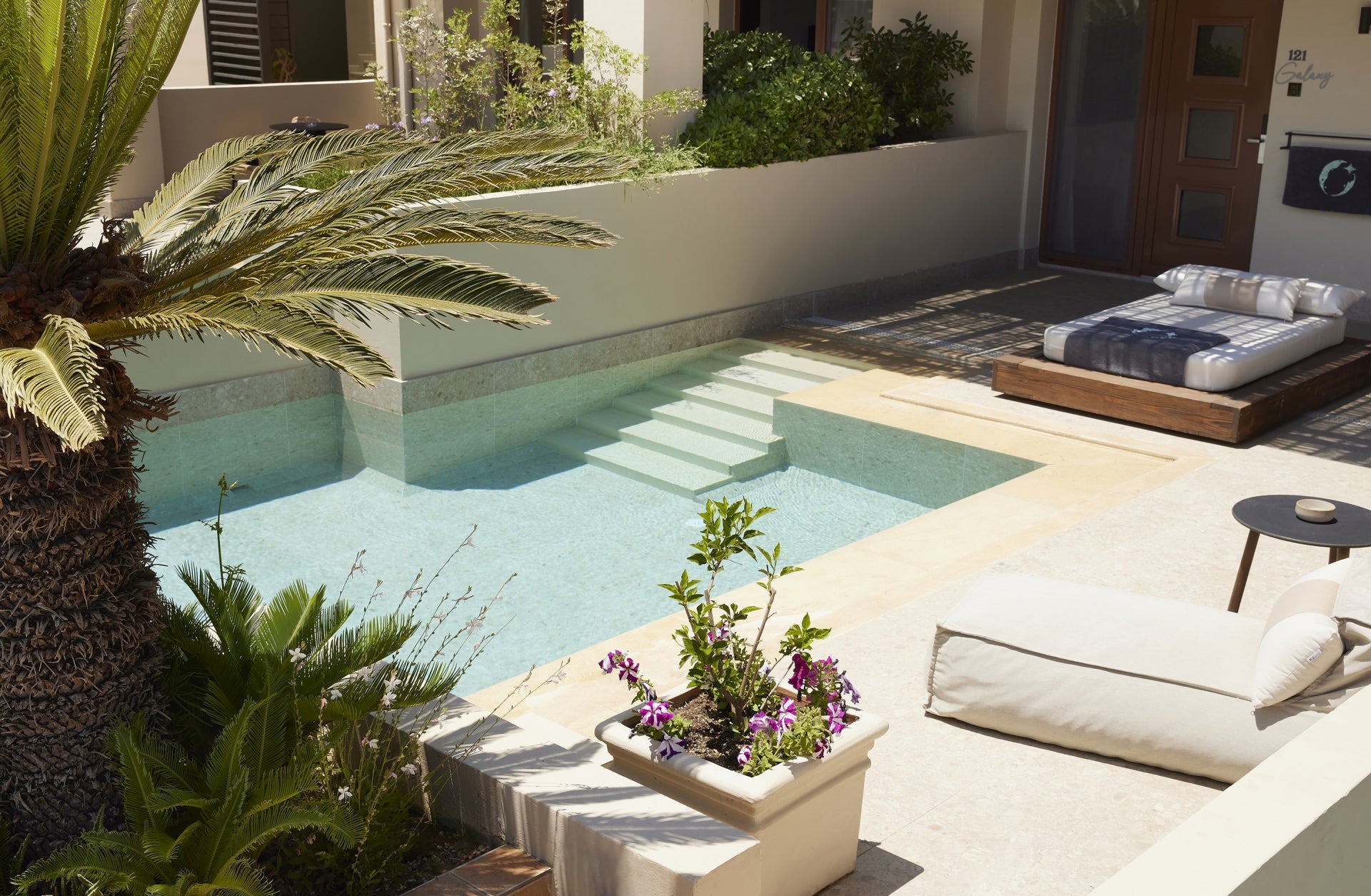How to embrace a healthy Mediterranean lifestyle – anywhere

Support truly
independent journalism
Our mission is to deliver unbiased, fact-based reporting that holds power to account and exposes the truth.
Whether $5 or $50, every contribution counts.
Support us to deliver journalism without an agenda.
I’ve just returned from a restorative getaway in sun-soaked Crete, staying at Asterion Suites & Spa. Situated along Maleme Beach’s strip of sand and shingle, the tranquil hotel centres on an expansive pool lined with plump sun loungers and curtained cabanas.
Here, I enjoyed invigorating morning yoga and a rejuvenating massage using locally sourced olive oil and aromatic herbs. Colourful, plant-packed meals were another highlight. I had to refrain from ordering the tzatziki and a Dakos salad – topped with juicy tomatoes and crumbly feta – at every meal.
The Mediterranean lifestyle is widely acknowledged as lending itself to a longer, healthier life – and it’s easy to see why. As our lives become busier and it’s increasingly difficult to “switch off”, the slower pace, access to sun and sea, and delicious yet highly nourishing food are rather swoonworthy.
I left that postcard-perfect slice of paradise feeling refreshed and wondering, could its abundant wellness benefits be experienced at home? According to the experts, the answer is a resounding yes. Below they offer advice for embracing a Mediterranean mood, even in a gloomy UK.

Science-backed benefits
I paid a visit to progressive wellbeing clinic, the Galen Clinic – named after the notable Greek physician. Here, Dr Andreas Androulakakis, co-founder and medical director, confirmed that the Mediterranean way of life has a myriad of science-backed benefits.
“The diet’s emphasis on healthy fats, antioxidants, and anti-inflammatory foods help reduce the risk of heart disease and stroke. It’s also shown to lower rates of type 2 diabetes and cancer,” he says. “People in the Mediterranean tend to live longer, experiencing lower rates of depression and anxiety, thanks to this balanced diet along with their active lifestyle, stress-reduction practices, and prioritising strong social connections.”

Eat the rainbow
Avoid processed foods, instead opting for seasonal ingredients and home-cooking wherever possible. Celine Ivari, founder of WholyMe – a wellbeing brand that provides natural solutions for the maintenance of muscle and joint health – explains the foundations of a good Mediterranean diet.
She says, “It’s based around whole foods like fresh fruits, vegetables, nuts, seeds, whole grains, fish, and olive oil. These provide essential nutrients and anti-inflammatory compounds that support longevity. The lifestyle also promotes taking time to eat and enjoying meals with others, fostering mindful eating and social connections, which reduce stress and improve mental health.”

Stay moving
Whether it’s swimming in the sea or walking to work, exercise is an essential part of each day for most in Mediterranean countries.
Popi Makri, the Galen Clinic’s co-founder and creative director says, for those who want to improve their health, “start by making movement a priority. This doesn’t necessarily mean hitting the gym. It’s more about integrating gentle activity into daily life, like walking, yoga, gardening, or doing chores around the house. The focus is on avoiding long periods of sitting.”
If you work in a sedentary desk job, be sure to get up periodically throughout the day.

Get your sunshine fix
While the sun shines regularly in Mediterranean countries, it’s harder to come by in the UK. Try using a “SAD lamp” during autumn and winter. This bright light replicates the sun, helping to increase levels of alertness and promote better synchronisation of your biological clock. Also, consider taking a vitamin D3 supplement.
“Low dietary intake and limited sun exposure have led to large numbers of the UK population being deficient in vitamin D,” explains Shabir Daya, in-house pharmacist at wellness e-retailer, Victoria Health. “We’ve seen a surge of studies indicating that vitamin D deficiency is linked to a variety of chronic health concerns, so it is advisable to get your vitamin D levels checked at least once a year and to take supplements as needed.”

Prioritise me-time
Makri also emphasises the importance of maintaining a work-life balance. She concludes: “Make time for your hobbies and spend time outdoors each day, getting some sunlight and fresh air. Prioritise relaxation and mindfulness strategies to keep stress in check.”
This may look like treating yourself to regular massages or simply taking five minutes before bed to meditate, guided by an app such as Headspace or Calm.
Source: Independent















